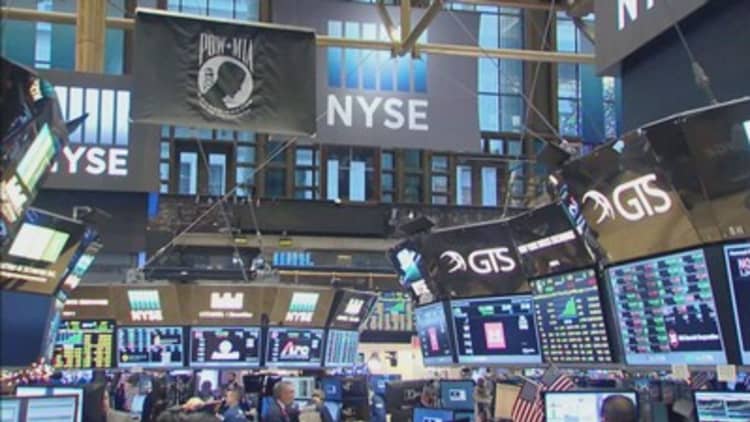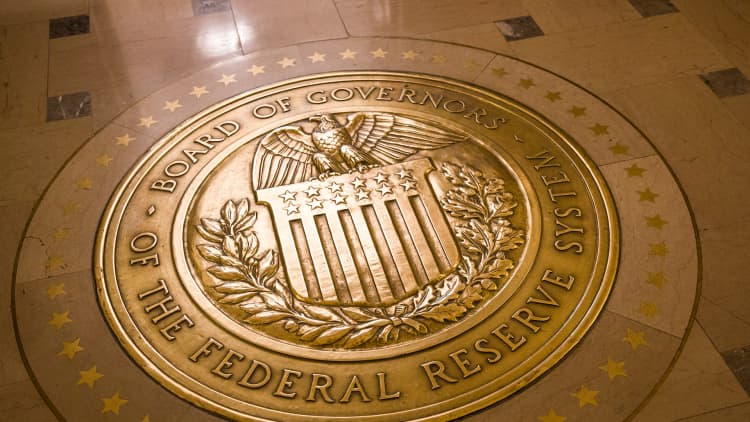
Investors are more comfortable holding cash than investing in traditional assets because they consider a crash in global bond markets and a policy mistake by central banks to be the biggest risks to the market, according to a survey.
The Bank of America Merrill Lynch July Fund Manager Survey that polled 207 asset managers with $586 billion under management, showed that while the average cash balance has dipped to 4.9 percent from 5 percent last month, the 10-year average remains above 4.5 percent.
"Risk appetite remains equivocal with global cash balances still high at 4.9 percent despite clear inflection point lower in global growth/earnings per share estimates," the survey said.
Investors' biggest fears
While 28 percent of those surveyed fear a crash in bond markets the most, 27 percent are concerned a central bank mistake is most likely to leave markets in troublesome waters.
It further pointed that fund managers are taking out more protection and cash positions. When asked why, 45 percent of investors who responded highlighted a bearish view on markets.
"Fund managers' biggest fears are a shock coming from bond markets or central banks," said Michael Hartnett, BofAML chief investment strategist. "Too many investors see the Fed as a likely negative catalyst."
One potential trigger could be the Fed reducing its balance sheet, the survey found.
"Although 48 percent of investors see it as a non-event, a notable minority, 31 percent, thought any decrease would be risk-off pushing bond yields higher and equities lower," the survey said.
Bond yields saw a major sell-off in the last few weeks as investors started to worry if the hawkish tones coming out of central banks would mean a risk to the global economy. Coutts, the wealth managing arm of the Royal Bank of Scotland, in its midyear outlook said that despite the reflationary environment, bond yields remain very low.
"This suggests low returns — and the possibility of losing money if yields rise — for long-term investors. In the shorter term, the reflationary environment characterized by rising inflation and rising nominal rates is likely to be negative for bonds, particularly those that are interest rate sensitive," according to Coutts.
Equities still remain popular
The survey saw a slight reduction in equities in July and increase into bonds. Equities, however, remained the most owned asset class even though they are considered expensive.
But equity markets across the world have seen fluctuations amid the corporate earnings season and central bank moves toward a hawkish path. Higher rates and tighter monetary policies are not good for stocks because they restrain companies from borrowing money at a reasonable rate for expanding and other business needs.
Equity markets took a hit then but still remained off lows last week after Fed chief Janet Yellen in her testimony struck a slightly less hawkish tone than expected as she addressed questions about the U.S. economy and the future of Fed's interest rate cycle.
Emerging markets look much cheaper
"Despite expensive valuations, the economic environment remains supportive for equities," Coutts said in its midyear outlook. "We remain slightly overweight on the back of the positive macroeconomic backdrop and receding political risks. We are cautious, however, and favor relative value within the asset class."
Coutts further added that it prefers European and emerging market equities over the U.S. because the former are cheap and the cyclical backdrop looks more favorable.
"After six years of disappointing economic growth and underperformance of developed markets, emerging markets equities now look much cheaper. They should re-rate if relative gross domestic product (GDP) growth and earnings per share improve, as predicted by analysts."
At a sector level, the BofA survey points to banks being slightly more favored over tech. While banks are considered the most undervalued, tech is the most overvalued.
WATCH:
CNBC Explains: Why do we have the Fed?



